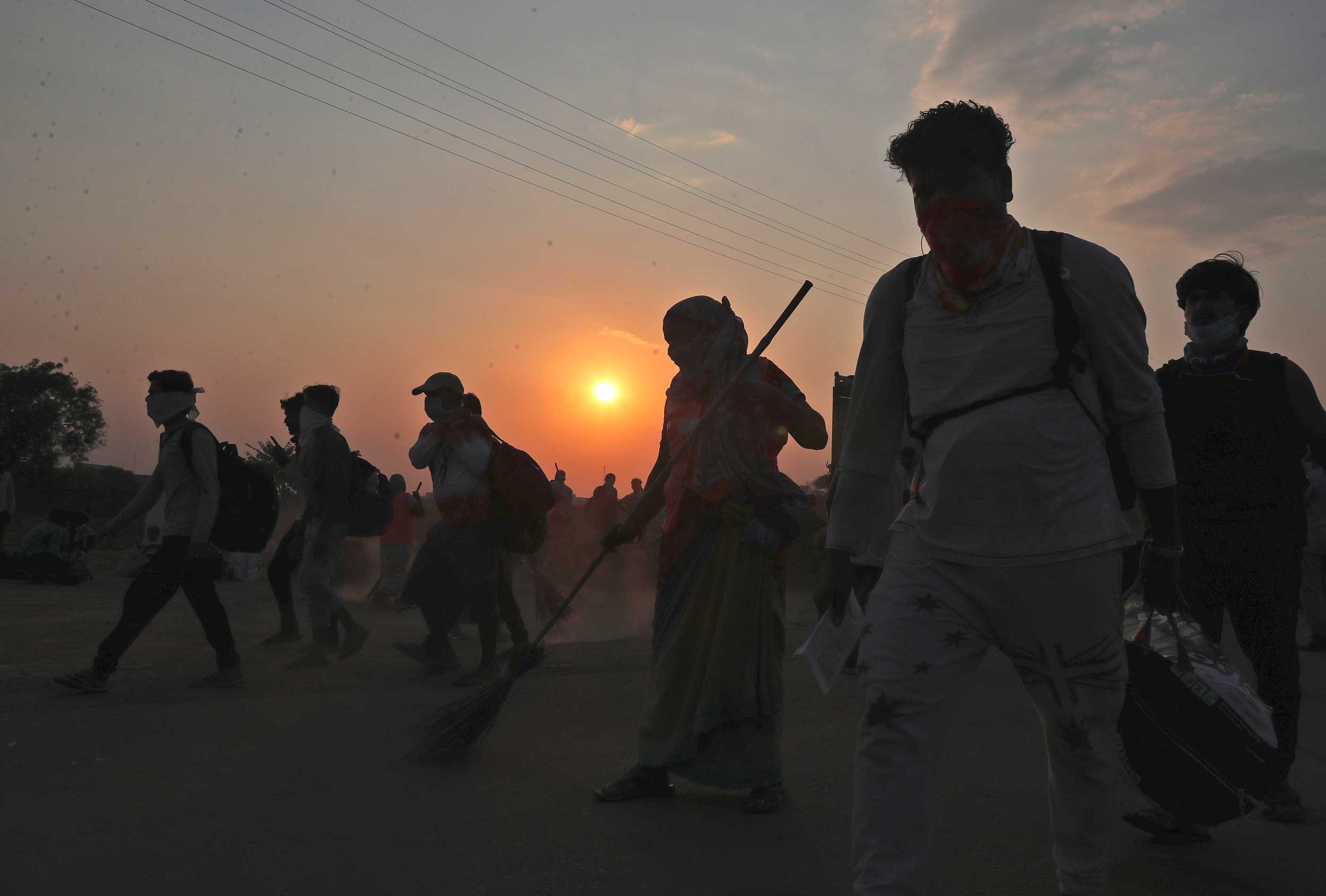Food is sometimes dispensable. Painkillers are not.
For some migrant labourers walking back home on foot day after day on unforgiving roads, painkillers have become an inseparable part of their lives in transit.
The medicines help them bear the pain of cuts, blisters and swellings, offering temporary relief to keep them on their feet for a few hours more.
“Before we started, we bought 10 packets of painkillers. Every day we take two painkillers. Sometimes we skip food but these pain relievers are a must. They can be had even with biscuits,” Bharat Nayak, a migrant walking back from Visakhapatnam to his village in Jajpur district, Odisha, told this correspondent.
Nayak had already covered more than 400km on foot from the Andhra Pradesh port city. He still needs to cover around a hundred kilometres more to reach Jajpur.
Nayak was part of a group of migrant labourers this correspondent spoke to as they passed through Bhubaneswar. They had agreed to stop for a chat on the condition that they would not be photographed.
“It’s painful to walk with day temperatures hovering around 40 degrees Celsius. The feet swell up. Painkillers are a big help in lessening the pain,” said Harihara Hansdha, another migrant in the group.
Food is scarce and hunger is a constant companion but procuring painkillers across the counter has been easy with medicine shops open under government instructions.
“We generally ask for medicines for leg pain and they give us. A strip comes for around Rs 50 to Rs 60. We are also carrying pain-relieving ointments that we rub on our legs from time to time. Some medicine dealers said we should take antacids along with painkillers,” said Ranjan Das.
Doctors warn against the use of painkillers without medical advice. “While undertaking such exhausting journeys, people should avoid taking painkillers regularly. They have side effects. They can damage the kidneys. They can lead to (peptic) ulceration,” Dr B.K. Parija, who retired from Coal India, told The Telegraph. “No painkiller should be taken without a doctor’s advice and never on an empty stomach.”
For the migrants, the painkillers have become as indispensable as tobacco products like gutka and khaini. “You need something to chew on. It makes you forget the labour of walking,” said another migrant, referring to the tobacco products.
How do they manage to keep walking hour after hour? Thanks to their desperation to reach home.
The migrants drink “plain water” when thirsty, one of them said. Few of them can afford to buy glucose.
The road has also thrown up ready-made remedies. Since most of them walk barefoot, the migrants often wrap a gamuchha (thin towel) around their feet. “It can be made wet with water and is a big relief,” one of the migrants said.
The Odisha government has now announced that it will provide transport facilities to all migrant labourers passing through its territory.
“The state government has made arrangements for the transport of migrant workers from our border checkpoints to our other border points nearest to their (home) state. The expenditure incurred on transport and food are to be borne by the government of Odisha. The assistance is being given from the chief minister’s relief fund,” Subroto Bagchi, the Odisha government spokesperson on Covid-19, said.











